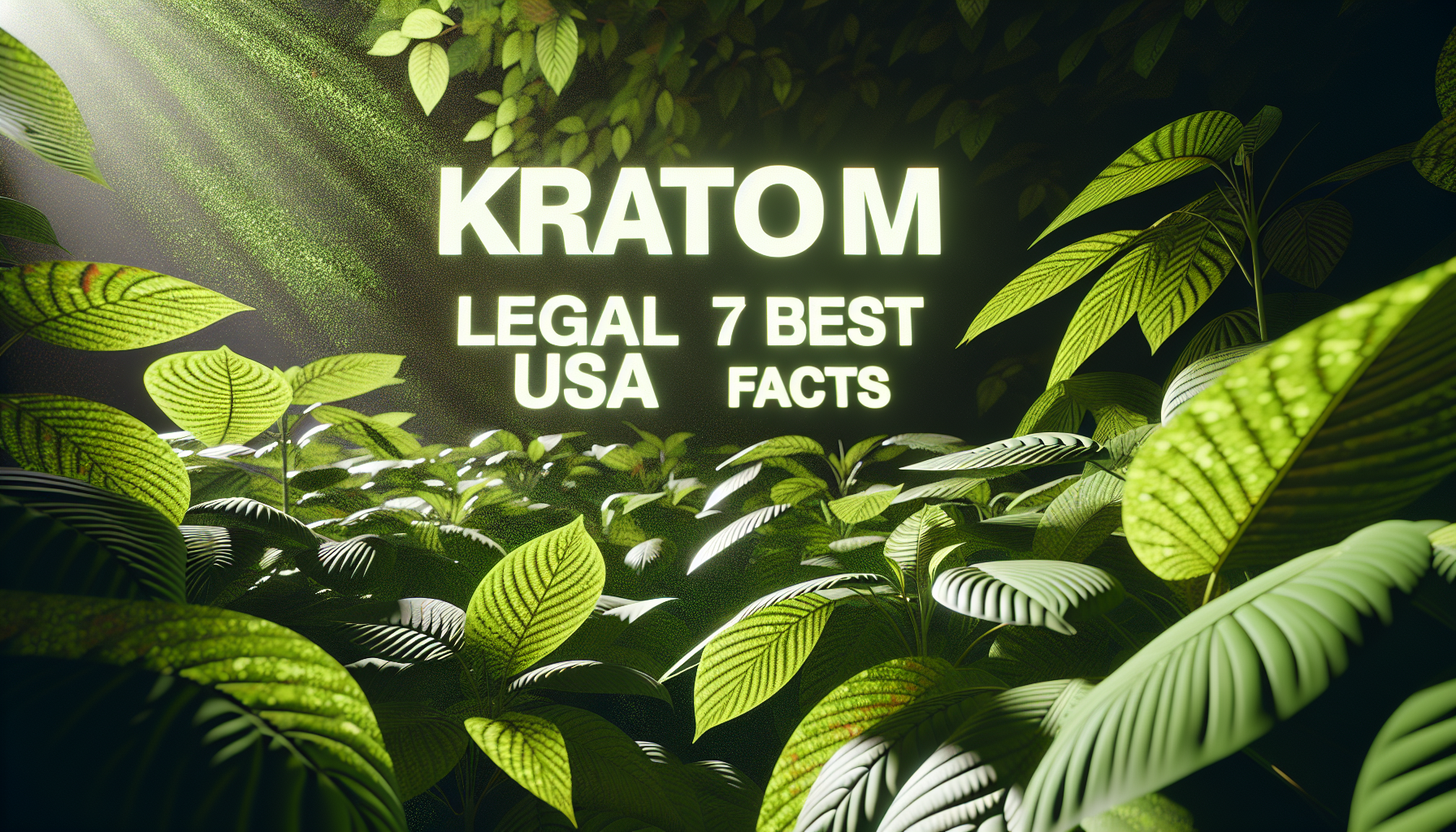
Originating from Southeast Asia, the herbal supplement known for its alleged health benefits has sparked debates regarding its legal status within the United States. With warnings issued by the FDA and varying regulations in different states, the future of kratom legality remains uncertain amidst ongoing discussions and research.
Despite safety concerns raised by authorities, many individuals continue to use kratom for its potential pain relief and mood-enhancing properties.
Public opinion continues to shape the narrative, with advocates touting its medicinal value while opponents emphasize the risks associated with kratom use.
Fda regulations on kratom
Over the past few years, concerns have risen over the effects of a certain substance derived from leaves found in Southeast Asia, known for its traditional use in the region. The regulatory landscape surrounding this substance remains complex, with ongoing debates about its legality and potential benefits versus risks.
Despite its long history of traditional use, there are increasing concerns about its potential risks, including its opioid-like effects.
Currently, this substance is not approved for any medical use in the US, and warnings have been issued about the associated risks.
The FDA has taken a firm stance on this substance, leading to debates about its legal status and whether it should be banned.

Understanding the legality of kratom use
Kratom, a plant known for its therapeutic properties, has gained attention for its complex legal status in the United States. The FDA has expressed concerns about its safety, warning about potential risks like seizures and dependence.
State laws regarding this botanical substance vary, with some states opting to ban it altogether.
Recent legislative changes have further impacted the availability of kratom as a dietary supplement.
Kratom Legal Status
- The FDA has issued warnings about potential risks such as seizures and dependence associated with kratom
- State laws in the United States vary regarding the legality of kratom, with some states choosing to ban it completely
- Recent legislative changes have impacted the availability of kratom as a dietary supplement
Potential risks associated with kratom products
Exposure to the tropical tree native to Southeast Asia, known for its stimulating properties, has raised concerns about potential health risks associated with kratom consumption. Kratom leaves contain compounds such as mitragynine and 7-hydroxymitragynine, which act as stimulants when consumed.
These substances can also lead to adverse effects on physical and mental health.
Regular use of kratom products has been linked to the risk of addiction and dependence, as well as potential interactions with other substances.
Concerns about contamination and impurities in kratom products raise public health worries. The legal status of kratom as a controlled substance adds to the overall risk associated with its use.
The therapeutic benefits of kratom
Native to Southeast Asia, this tropical tree with potential therapeutic uses originated in countries like Thailand and Malaysia. For centuries, it has been utilized as an herbal supplement, interacting with the body’s receptors to produce psychoactive and stimulant effects.
Studies have indicated its effectiveness in managing pain, anxiety, and depression, appealing to a wide range of users.
Despite its benefits, understanding safe usage and dosage recommendations is crucial to prevent the risk of addiction.
Ongoing scientific research explores the diverse medical conditions that this botanical substance can potentially alleviate, highlighting its intriguing properties.
Mitragynine and its effects on the body
Originating from a tree native to Southeast Asia, Mitragynine is a natural compound known for its distinct effects on the body. With a complex mechanism of action that impacts the central nervous system, this alkaloid has been found to offer therapeutic benefits and relieve pain when consumed in lower doses.
Risks associated with long-term use and high doses, such as respiratory depression, must be considered.
Understanding the legal landscape surrounding Mitragynine and products containing it, like Kratom, is essential for making informed decisions about its use.
It is crucial to be aware of the potential opioid-like effects and the legality of Kratom to ensure responsible consumption.
Kratom as a botanical dietary supplement
In recent years, an ancient plant from Southeast Asia has gained popularity as a botanical dietary supplement. Originating from indigenous communities and known for its medicinal properties, this versatile plant has sparked both interest and controversy in the Western world.
Despite its potential health benefits, there are also risks associated with its consumption.
As regulations and legal status evolve, it’s crucial for consumers to educate themselves on how to safely and responsibly use this botanical dietary supplement.
Public health concerns surrounding kratom
The controversy surrounding kratom, a plant originating from Southeast Asia, is multifaceted and complex. The FDA’s stance against its legality reflects concerns about the potential effects of kratom use.
Ongoing research is shedding light on the safety and efficacy of this substance, with conflicting evidence emerging.
The specific strain of kratom and the manner in which it is consumed can greatly impact its health implications.
The growing epidemic in the United States involving kratom has led to calls for more stringent regulation. It is essential for individuals considering kratom as an alternative treatment to thoroughly comprehend its risks and benefits.
The debate over kratom regulation within the medical community persists, highlighting the need for continued study and understanding.
The legal status of mitragyna speciosa.
Mitragyna speciosa, also popularly known as kratom, presents a multi-faceted legal landscape within the United States. Despite lacking federal classification as a controlled substance, specific states have opted to regulate or prohibit its utilization.
Given the varying legality of kratom powder and other related products across state borders, it is paramount for individuals to familiarize themselves with local restrictions.
The FDA has refrained from endorsing kratom for medical purposes, expressing apprehensions regarding potential risks and the dearth of comprehensive scientific inquiry into its effects.
Concerns raised by substance abuse and mental health entities further accentuate the apprehensions surrounding kratom products.
Kratoms Legal Status in USA Why FDA and Kratom Use Matter
Navigating Kratom Laws Understanding Legality in USA


